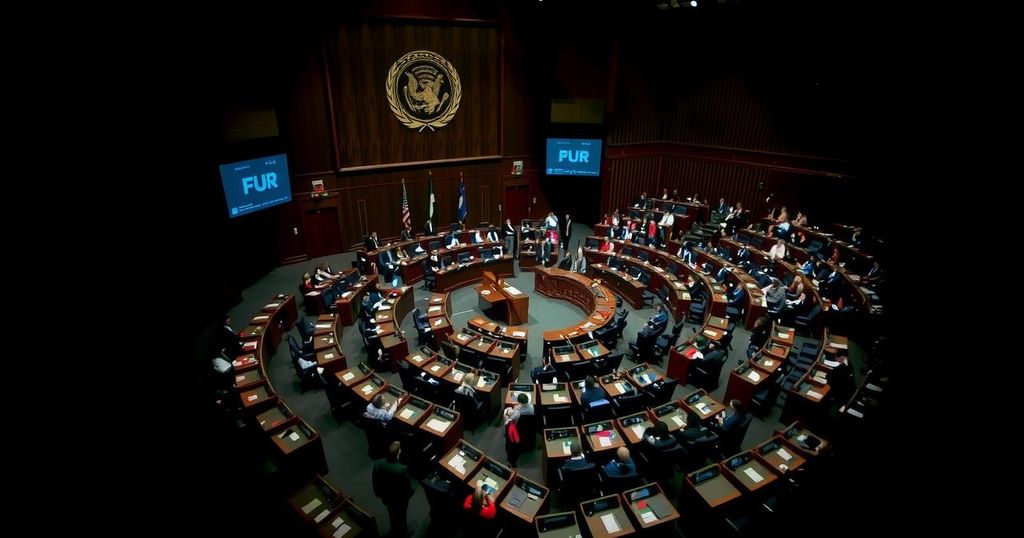Understanding the International Court’s Hearings on Climate Change Obligations

The International Court of Justice will begin hearings on December 2, 2023, focusing on an Advisory Opinion concerning state obligations regarding climate change, solicited by the UN General Assembly. With over 100 countries participating, the hearings will clarify legal responsibilities related to climate impacts, particularly for vulnerable nations like Vanuatu. While the outcome may not be legally binding, it is expected to influence future climate law and policy significantly.
The International Court of Justice (ICJ) is set to commence hearings on December 2, 2023, regarding an Advisory Opinion requested by the United Nations General Assembly, focusing on the responsibilities of nations in relation to climate change. This unprecedented session will witness representatives from over 100 countries and organizations providing insights into the legal obligations imposed upon states for their contributions to climate change. The ICJ, established in 1945, serves as a neutral forum for resolving disputes between countries and issuing advisory opinions on legal questions, which, while non-binding, hold significant moral authority.
The request for the Advisory Opinion was initiated by Vanuatu, a Pacific island nation that has become increasingly vulnerable due to climate change impacts such as flooding and typhoons. The specific questions posed to the ICJ revolve around the obligations of states to protect the climate system and the environmental rights of both current and future generations. Advocates and legal experts anticipate that the ICJ’s opinion could influence future climate-related legislation and litigation.
Notably, the ICJ will likely explore the implications of the Paris Agreement, an international treaty aimed at combatting climate change. However, there is ongoing debate regarding the legal binding nature of the Agreement among participating countries. Historical legal interpretations from other courts, such as the International Tribunal for the Law of the Sea and the European Court of Human Rights, suggest that the ICJ could consider climate change obligations even in treaties that do not explicitly mention it.
Additionally, the ICJ’s engagement with scientists from the UN’s Intergovernmental Panel on Climate Change signifies an intention to ground its opinion in scientific findings. While the hearings will be publicly accessible, attendance is limited, with public participation on a first-come, first-served basis, although the proceedings will be streamed online for wider viewing.
The outcomes of these hearings will be closely monitored, as they have the potential to shape international climate law, even if the opinion itself may not carry legal weight. The culmination of this critical dialogue on climate obligations is anticipated to guide both global and local responses to the climate crisis in the coming years.
The International Court of Justice serves as the principal judicial organ of the United Nations, tasked with settling legal disputes between states and providing advisory opinions on contentious international legal questions. Its upcoming hearings regarding climate change represent a milestone moment as it grapples with the complexities of environmental law tied to state responsibilities. This new focus on climate obligations underscores an evolving recognition of climate change as a pressing issue that necessitates legal scrutiny. Vanuatu’s request for an Advisory Opinion reflects the urgent concerns of vulnerable nations facing existential threats from climate change and aims to clarify the legal frameworks surrounding state accountability in mitigating such impacts, both present and future.
In summary, the upcoming hearings by the International Court of Justice mark a significant development in the intersection of international law and climate responsibility. With over 100 countries participating, the examination of states’ obligations under international law for climate protection will be crucial in shaping future policies and litigations. While the advisory opinion itself may not be legally binding, its implications could resonate throughout various legislative frameworks globally, further integrating climate considerations into international law. The proceedings will be a pivotal moment in understanding how legal interpretations can adapt to contemporary challenges posed by climate change.
Original Source: www.forbes.com






